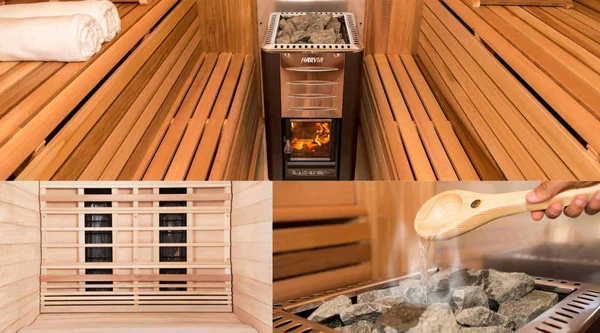The Ultimate Guide to Electric Sauna Heaters?
An electric sauna heater provides a clean, efficient, and easy way to enjoy home sauna sessions. It’s low-maintenance

Setting up a personal sauna at home is now simple and practical. With compact heating systems available, the Electric Sauna Heater stands out for its ease of use and performance. This guide covers what it is, why it’s preferred, and key points to consider before making a purchase.
What is an Electric Sauna Heater?
An Electric Sauna Heater uses electricity to warm a sauna room. It heats internal coils or elements, which then warm sauna stones. These stones retain and distribute heat evenly. Some models let you add water to create steam for a traditional sauna feel without fire or fuel.
Benefits of Using an Electric Sauna Heater
Electric sauna heaters have become a go-to option for many homeowners, thanks to their simplicity and efficient performance. Below are the main benefits you can expect when using one:
- Easy Installation:
Most residential electric sauna heaters can be installed quickly. Smaller units often connect directly to a standard outlet, while larger ones may require professional wiring. - Low Maintenance:
Unlike wood-burning heaters, electric models produce no smoke, ash, or soot. This means less mess and easier cleaning, especially for indoor saunas. - Consistent Heating:
Electric heaters maintain a steady temperature and allow precise control. Users can adjust the heat using manual dials or digital panels for a personalized sauna experience. - Space-Saving Design:
Many electric models are wall-mounted, making them ideal for compact or indoor setups where floor space is limited.
In summary, electric sauna heaters offer a clean, efficient, and user-friendly way to enjoy sauna therapy, especially in home settings where convenience and safety matter most.
Things to Consider Before Buying
Before you purchase an electric sauna heater, there are a few key points to review to make sure it suits your specific needs:
- Sauna Room Size:
Choose a heater based on the cubic footage of your sauna room. Using a heater that is too small or too large can affect performance and energy use. - Power Requirements:
Check your home’s electrical setup. Some heaters need a dedicated power source or specific voltage, which may require an electrician. - Type of Controls:
Decide between manual dials and digital control panels. Some advanced models also offer remote access or mobile app compatibility. - Safety Features:
Look for built-in features like automatic shut-off, overheat protection, and timers. These are especially important for homes with children or seniors.
Taking the time to evaluate these factors will help you choose a heater that is safe, effective, and tailored to your needs—ensuring a better sauna experience in the long run.
Comparison: Electric vs. Other Heating Options
Electric heaters are more user-friendly and efficient than many traditional models. They heat up quickly, offer better control, and fit well in modern homes. While initial costs may be higher, lower maintenance often results in long-term savings.
When to Consider Other Options
In certain cases, a Gas Sauna Heater might be a better fit—especially for large, outdoor, or commercial sauna setups. Gas heaters can heat larger spaces more quickly and often have lower fuel costs over time. However, they need proper ventilation and more complex installation.
Conclusion
An electric sauna heater provides a clean, efficient, and easy way to enjoy home sauna sessions. It’s low-maintenance, user-friendly, and a practical choice for both new setups and upgrades. It also offers consistent heat control, making every session comfortable and reliable.





